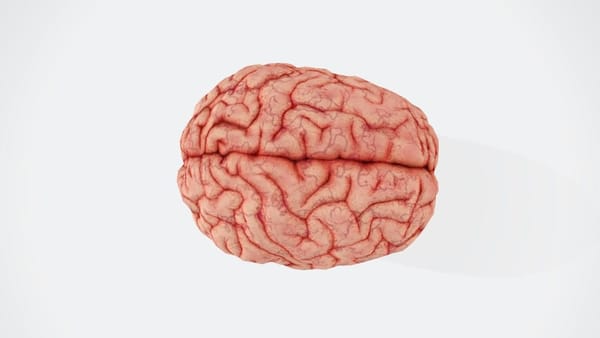As we age, our bodies undergo numerous changes that can make it increasingly challenging to maintain muscle mass and keep excess fat at bay. This is particularly true for individuals over 50, who often find themselves struggling to achieve their fitness goals despite consistent exercise and a healthy diet. In this comprehensive article, we'll explore the science behind muscle building and fat loss after 50, and reveal the one crucial factor that can make all the difference in your fitness journey.
The Challenges of Building Muscle and Losing Fat After 50
As we enter our fifth decade of life, several physiological changes occur that can impact our ability to build muscle and lose fat:
Hormonal Changes One of the most significant factors affecting muscle growth and fat loss after 50 is the decline in hormone production. For men, testosterone levels begin to decrease, while women experience a drop in estrogen during menopause. These hormonal shifts can lead to:
- Reduced muscle protein synthesis
- Increased fat storage, particularly around the midsection
- Decreased bone density
- Lower energy levels and motivation for exercise
Muscle Loss (Sarcopenia) Starting around age 30, adults begin to lose muscle mass at a rate of about 3-5% per decade[2]. This process, known as sarcopenia, accelerates after age 50 and can lead to:
- Decreased strength and power
- Reduced metabolic rate
- Increased risk of falls and fractures
- Difficulty performing daily activities
Anabolic Resistance Research has shown that as we age, our muscles become less responsive to the anabolic (muscle-building) effects of exercise and protein intake. This phenomenon, known as anabolic resistance, can make it more challenging to build and maintain muscle mass[4].
The One Thing That Makes a Difference: Optimizing Muscle Protein Synthesis
Despite these challenges, there is hope for those looking to build muscle and lose fat after 50. According to Dr. Tracy Gapin, a board-certified urologist and men's health expert, the key to overcoming age-related muscle loss and fat gain comes down to one crucial factor: optimizing muscle protein synthesis[1].
Muscle protein synthesis (MPS) is the process by which your body builds new muscle tissue. By focusing on strategies that enhance MPS, individuals over 50 can effectively combat sarcopenia, boost their metabolism, and improve their overall body composition.
Strategies to Optimize Muscle Protein Synthesis After 50
To maximize muscle protein synthesis and overcome the challenges of building muscle after 50, consider implementing the following evidence-based strategies:
1. Increase Protein Intake As we age, our bodies require more protein to stimulate muscle protein synthesis effectively. Aim for:
- 1.2-1.6 grams of protein per kilogram of body weight daily
- 25-40 grams of high-quality protein per meal
- Protein sources rich in leucine, such as whey protein, lean meats, and eggs
2. Implement Progressive Resistance Training Resistance training is crucial for stimulating muscle growth and maintaining strength. Focus on:
- Compound exercises that target multiple muscle groups
- Gradually increasing weight and intensity over time
- 2-3 strength training sessions per week, allowing for adequate recovery
3. Optimize Post-Workout Nutrition The post-exercise period is critical for maximizing muscle protein synthesis. Consider:
- Consuming 20-40 grams of protein within 30 minutes of completing your workout
- Including carbohydrates to replenish glycogen stores and enhance protein uptake
- Hydrating adequately to support recovery and muscle function
4. Incorporate Supplements Strategically Certain supplements can help support muscle protein synthesis and overall health:
- Creatine monohydrate: Shown to enhance strength and muscle mass in older adults
- Omega-3 fatty acids: May help reduce inflammation and support muscle protein synthesis
- Vitamin D: Essential for muscle function and bone health, especially in older adults
5. Prioritize Sleep and Recovery Adequate sleep and recovery are crucial for muscle growth and fat loss:
- Aim for 7-9 hours of quality sleep per night
- Allow for sufficient rest between workouts
- Manage stress through relaxation techniques and mindfulness practices
6. Address Hormonal Imbalances Consult with a healthcare professional to assess and address any hormonal imbalances:
- Consider hormone replacement therapy under medical supervision
- Explore natural methods to support hormone production, such as stress reduction and dietary changes
The Role of Nutrition in Muscle Building and Fat Loss After 50
While protein intake is crucial for muscle protein synthesis, a well-rounded nutrition plan is essential for overall health and body composition. Consider the following dietary strategies:
Calorie Balance To lose fat while building muscle, you may need to adjust your calorie intake:
- Create a modest calorie deficit (10-20% below maintenance) for fat loss
- Ensure adequate calorie intake to support muscle growth and recovery
Nutrient Timing Strategically timing your nutrient intake can optimize muscle protein synthesis:
- Consume protein-rich meals every 3-4 hours throughout the day
- Consider a slow-digesting protein source before bed to support overnight muscle recovery
Micronutrient Focus Ensure adequate intake of essential vitamins and minerals:
- Calcium and vitamin D for bone health
- B vitamins for energy metabolism
- Antioxidants to combat inflammation and support recovery
The Importance of Consistency and Patience
Building muscle and losing fat after 50 requires a long-term commitment to lifestyle changes. Remember that progress may be slower than in your younger years, but consistency is key. Stay patient and focus on gradual improvements in strength, body composition, and overall health.
Conclusion: Embracing a Holistic Approach to Fitness After 50
While optimizing muscle protein synthesis is crucial for building muscle and losing fat after 50, it's essential to adopt a holistic approach to health and fitness. By combining targeted resistance training, proper nutrition, adequate recovery, and hormone optimization, individuals over 50 can effectively combat age-related muscle loss and fat gain.
Remember that every person's journey is unique, and it's essential to consult with healthcare professionals and certified fitness experts to develop a personalized plan that addresses your specific needs and goals. With dedication, patience, and the right strategies, it's possible to achieve remarkable improvements in muscle mass, strength, and overall body composition well into your 50s and beyond.
By focusing on optimizing muscle protein synthesis and implementing the strategies outlined in this article, you can take control of your health and fitness, ensuring that your golden years are filled with vitality, strength, and confidence.
Citations:
[1] https://alphahealthfindings.com/the-secret-to-gaining-muscle-after-40/
[2] https://www.webmd.com/healthy-aging/gain-muscle-mass-after-50
[3] https://www.aarp.org/health/healthy-living/info-2021/weight-loss-after-50.html
[4] https://www.ncbi.nlm.nih.gov/pmc/articles/PMC5096733/
[5] https://www.capitalstrength.com/build-muscle-burn-fat-50/
[6] https://www.webmd.com/diet/ss/slideshow-lose-weight-after-40












Member discussion